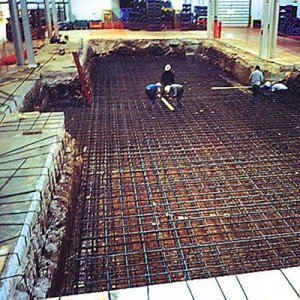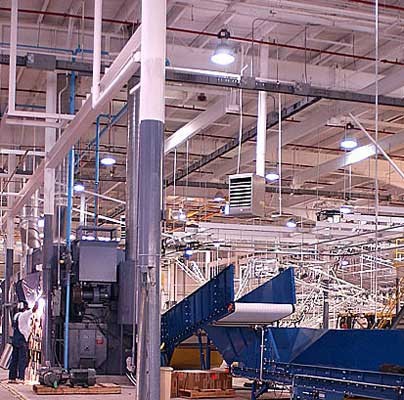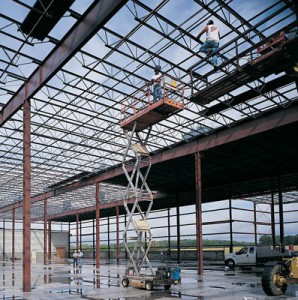Manufacturer Considerations for Site Selection
Manufacturers should carefully consider their facility needs in order to select the best site for their business.
If you’re looking to start or relocate manufacturing operations, you have big decisions to make. This process will require cold, hard planning and a certain amount of ingenuity. If you’ve been in business for some time, you may have a clear picture of your facility needs, and you may have even identified a few potential sites. But for all intents and purposes, we’ll start with the basics.
Manufacturing Site Selection Should:
- Foster efficient operation.
- Allow for flexibility and future business growth.
- Present your business in a desirable light.
- Accomplish these objectives at a reasonable cost.
- Determine what you need in a facility.
A vital step in the process of choosing a new manufacturing facility is to accurately determine your needs so that the building contributes to your profitability.
If you’re currently in business and have decided to relocate, this should be a fairly straightforward thought process. Envisioning your new facility may simply involve identifying which aspects of your present site you are satisfied with, and determining how you would improve upon the aspects that are stifling your business. Your proposed solutions may be theoretical for now, but they are grounded in the reality of your experience.
If you are just starting out and planning to construct a new facility, how can you make a wise choice for your business’s first home? You may feel that because you’re just entering the industry, you don’t have a firm grasp on what the operations of your business will be. If this describes your situation, we recommend that you learn as much as possible about your manufacturing process and future operations before you choose a facility, swing open the doors and learn as you go.
Factors for Evaluating Potential Facility Sites:
- It is the right size, construction, condition, and age?
- Interior: Is there adequate space? Will the space provide for the ideal layout and efficient function?
- Will it need to be modified in order to provide the capabilities and atmosphere that best suits your business? E.g. HVAC or electrical upgrades.
- Does the facility’s exterior appearance (and that of neighboring buildings) make the right impression about your business?
- Is the location ideal?
- Does it have the necessary features such as parking and loading docks?
Facility Size, Layout, and Appearance
 The structure and layout of your new manufacturing facility should function as a tool that helps you bring your products to your customers as efficiently as possible. What is necessary is often based on the type of products you manufacture.
The structure and layout of your new manufacturing facility should function as a tool that helps you bring your products to your customers as efficiently as possible. What is necessary is often based on the type of products you manufacture.
Manufacturers typically require large, open facilities that prioritize efficient material handling. This often takes the form of wide aisles and storage racks that allow for the use of forklifts and other industrial equipment. You’ll need enough space for supply storage, manufacturing processes, shipping, and receiving. The facilities of larger manufacturers may need to be highly specialized to accommodate complex heavy machinery and assembly lines.
TIP: Never before has the U.S. manufacturing industry depended so heavily on automation, flexibility and integrated technology. Therefore, before choosing a facility, it is imperative to know whether the building has the capability to grow and adapt with your business.
There are other functions you’ll want to consider making space for, especially if all departments of your business will operate under one roof. Those functions include:
- Marketing
- Billing
- Collection
- Payroll
- Facility maintenance
- Security
Plant Location
Can your business be located “anywhere,” or will you count on your presence in a specific location to make a statement about your business? When evaluating the location of your potential new manufacturing facility, consider the following questions:
- Is the site located in an urban area, suburb, small town, or remote area? And, is that ideal for your business?
- Can the location provide a skilled workforce?
- Is it convenient for your employees, customers and suppliers?
- Is the surrounding community supportive?
- Would the neighboring businesses benefit you?
- Are there any environmental problems?
- Is the security satisfactory?
- Does the facility qualify for affordable insurance protection?
Docks, Refuse, and Environmental Concerns
Most manufacturers have a large enough volume of shipping and/or receiving to require full-blown dock facilities, and many work with hazardous materials. If your company does, you’ll need to add the following considerations to your list of criteria for selecting a facility:
- Docks. You’re likely to need separate docks for shipping and receiving. With the constant flow of materials, any inefficiency that results from inadequate dock facilities may affect other functions within of your business.
- Refuse. Some manufacturers generate significant amounts of waste each day. Large, specialized trash receptacles and compactors may be necessary, especially if your operation requires the disposal food product or other organic waste. Don’t move forward with any facility until you know that you can obtain and use the necessary refuse disposal equipment.
- Hazardous materials. If your business receives, uses, or generates toxic wastes or other materials that may damage the environment, there are likely to be local, state, or federal disposal rules that your business must follow.
Are needed modifications feasible?
Here’s a common situation. You find a facility in a desirable location that generally meets your requirements for size, layout, location, and other provisions. It’s practically perfect, but there’s a thing or two about it that must be changed before you can use it. This could be anything from an electrical or HVAC upgrades to widening access doors. Before you agree to buy or rent this near-perfect facility, there are several factors regarding modification that you should consider:
 Will the modification be allowed? Find out which permits, if any, you would need from local authorities to do the work, and whether a zoning or building code variance would be required for for the modification.
Will the modification be allowed? Find out which permits, if any, you would need from local authorities to do the work, and whether a zoning or building code variance would be required for for the modification.- How long would it take? Could the length of construction time force you to postpone your intended start time? If construction would be going on as you use the building, could this have a negative effect on the operation of your business?
- How much would the change cost? At minimum, get a detailed estimate of how much the building modification would cost. If the work will be costly, yet vital to the operation of your business, you may want to ask for price or rent concessions from the seller or landlord.
The experienced industrial contractors at Storee are respected builders, fabricators and heavy equipment movers. We can modify any existing facility or construct a new one to perfectly suit your operations. Storee’s plant layout and design experts are dedicated to maximizing your productivity and profitability. Contact us about your manufacturing facility needs today.

